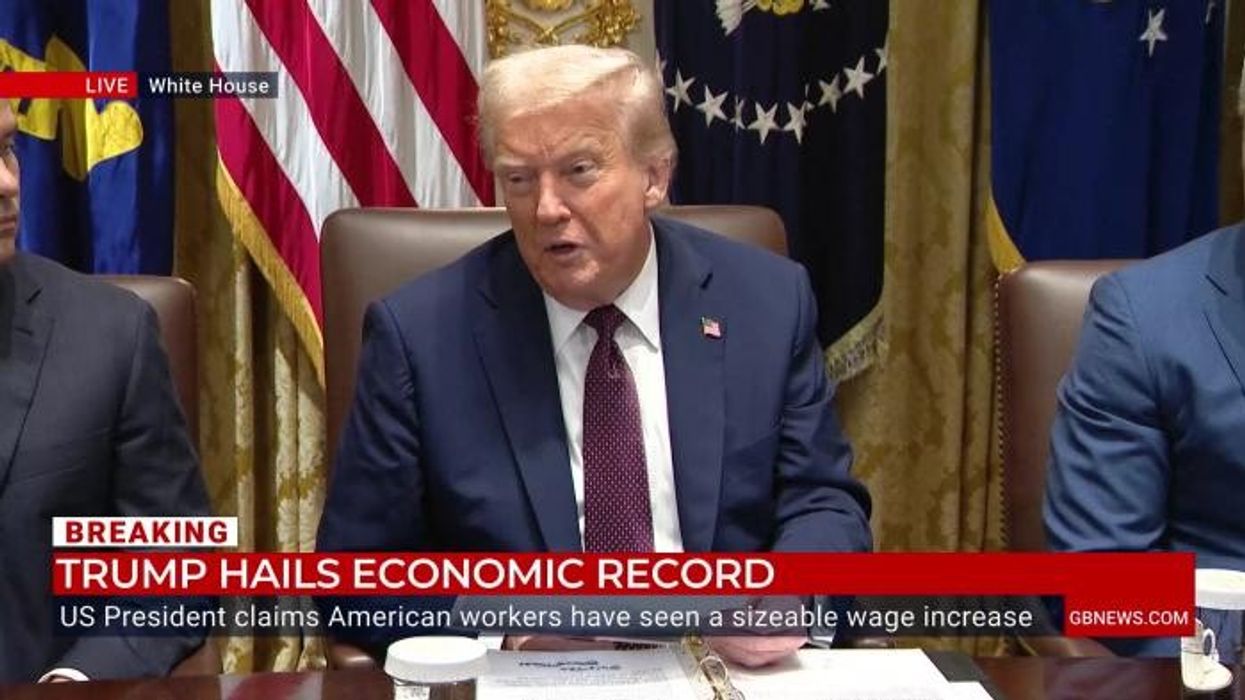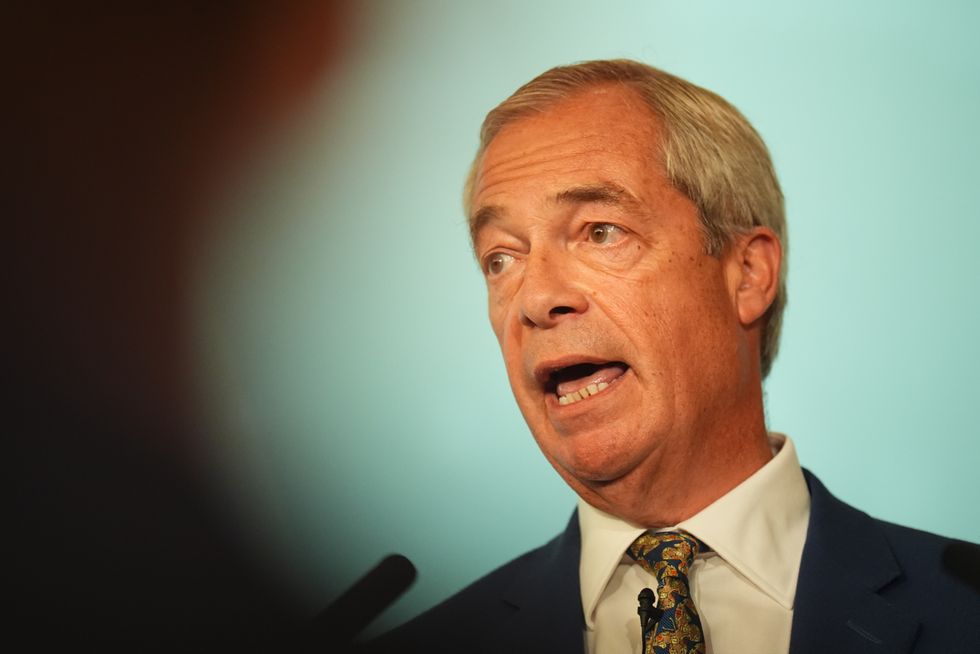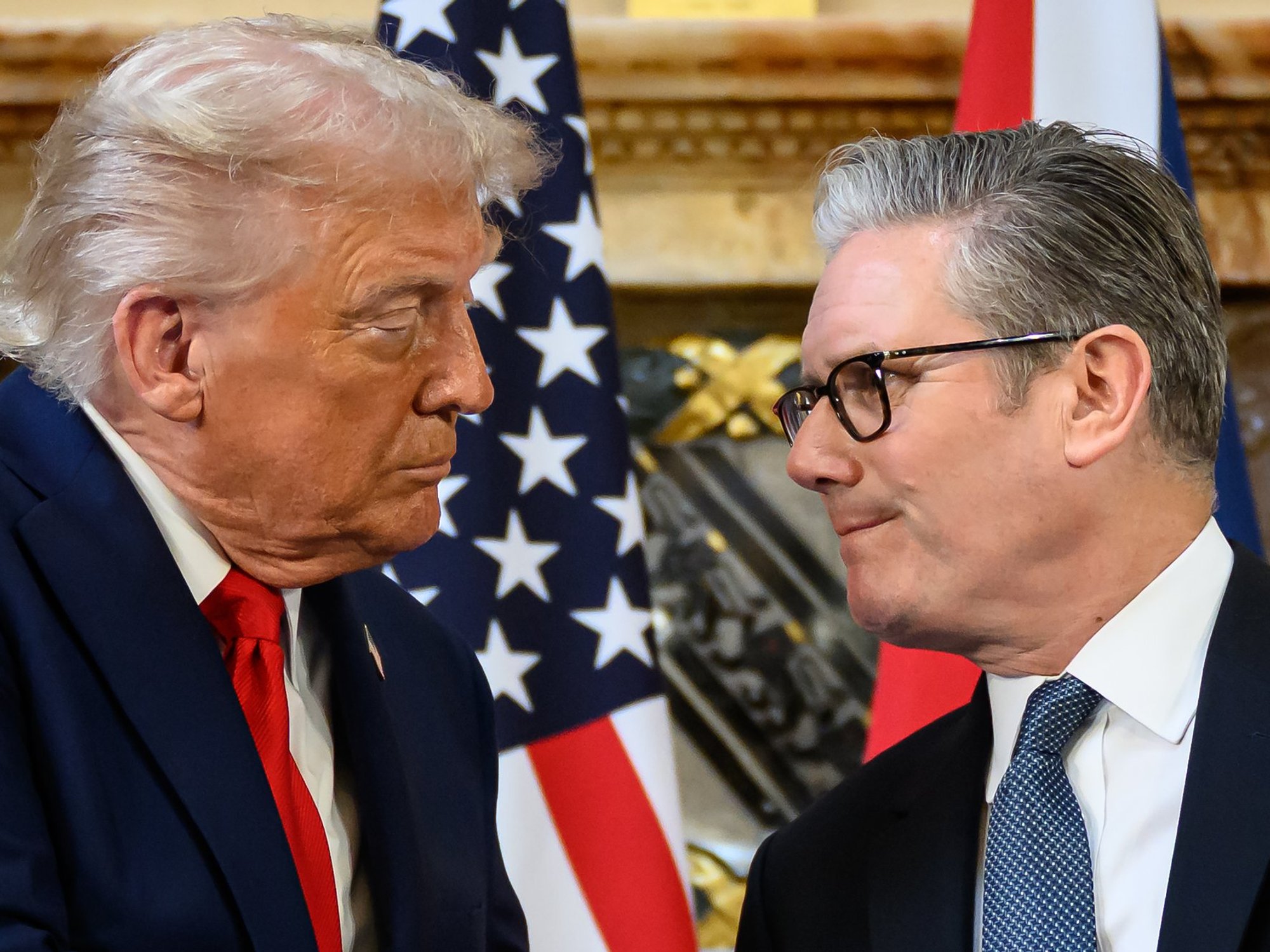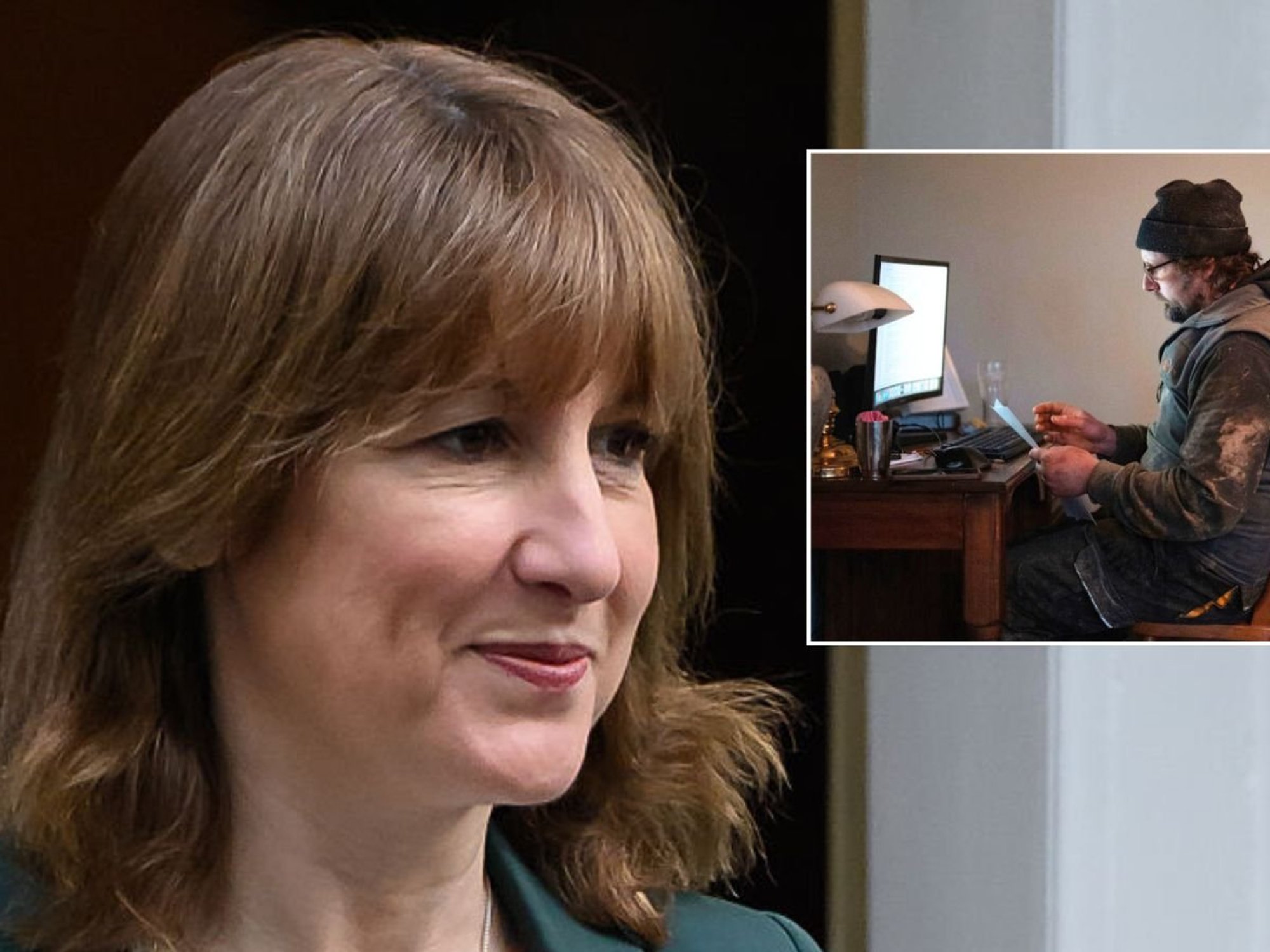Nigel Farage on collision course with Ed Miliband's climate agenda as new poll reveals surprising results

‘Destroying themselves!’ Donald Trump swipes at Ed Miliband’s green agenda and tells him what to do instead |
GB NEWS

Tory leader Kemi Badenoch is the least trusted, according to polling
Don't Miss
Most Read
Trending on GB News
Labour has "done nothing to reduce" public scepticism about its green policies, a pollster has claimed after a recent survey showed Nigel Farage is nearly as trustworthy as Sir Keir Starmer and Ed Miliband on Britain's climate agenda.
Roughly one in five voters - 22 per cent - have said they trust the Reform UK leader to have the right climate change policies while Energy Secretary, Mr Milliband, sits on 23 per cent and Sir Keir on 24 per cent.
Seventeen per cent see Farage's stance on climate change as similar to their own, which falls behind the 22 per cent for the Prime Minister.
Tory leader Kemi Badenoch sits on 18 per cent, while Liberal Democrats leader Sir Ed Davey has the most support with 25 per cent.
The findings come from a YouGov study for The Times, which found that Britons who believe the dangers of climate change have been exaggerated had climbed to more than 50 per cent in the past four years.
Opinium pollster James Crouch analysed the data and said the Government had a "strong and coherent energy policy.
"However, he said it was not landing with the public, because people care most about their bills".
"Voters back renewables when they mean cheaper, homegrown energy," Mr Crouch added.
 Ed Miliband is spearheading Britain's net zero push | GETTY
Ed Miliband is spearheading Britain's net zero push | GETTY"But (they) remain sceptical in the short term.
"So far, nothing the Government has said or done has reduced that scepticism."
Mr Crouch added that "anything that looks like chasing arbitrary targets of cutting costs feels like it's missing the point".
It is why he believes "one of the Government's strengths" isn't cutting through to the people.

Nigel Farage follows closely behind Ed Miliband and Sir Keir Starmer on climate change among voters
| PA"Nigel Farage, meanwhile, is positioning himself squarely against Ed Miliband's approach," Mr Crouch added.
"While dividing lines are good in politics, energy isn’t what drives Reform’s support, their real strengths are still immigration, crime, and social issues."
Meanwhile, Mr Miliband responded to the findings, saying it was on the Government to listen to the people who want energy bills reduced.
"Those who seek to divide communities with climate disinformation will not win because they do not represent the interests or values of the British people," he told The Times.
"The message from the majority of the British people is loud and clear; they want action from the Government to bring down energy bills with clean homegrown power, to invest in good jobs in our communities, and to protect our way of life for our children and grandchildren."
Mr Miliband said "that is why the Government is delivering our clean energy mission".
He added it was to get Britain "off the fossil fuel rollercoaster to give us energy security, bring down bills for good, and create goods".
Mr Miliband further said that he was "in a fight" with political opponents and that the consensus among parties on climate change had dramatically changed.
"It is not the same as it has been for the last two decades," he said.
"There's been a bipartisan consensus on these issues."
But, that "moment was always going to come" and those who supported cutting emissions would "win this fight".
The polling around whether the Government was doing too much or too little to reduce Britain's emissions was fragmented.
About 25 per cent thought ministers were doing and spending too much to cut carbon emissions, while 35 per cent believe the Government were not doing enough.
Of the voters, as little as 15 per cent believe the Government is getting it right.
Those backing the Government's goal of cutting emissions to net zero by 2050 are in the majority at 56 per cent.
About 29 per cent of voters opposed the move.
More From GB News










